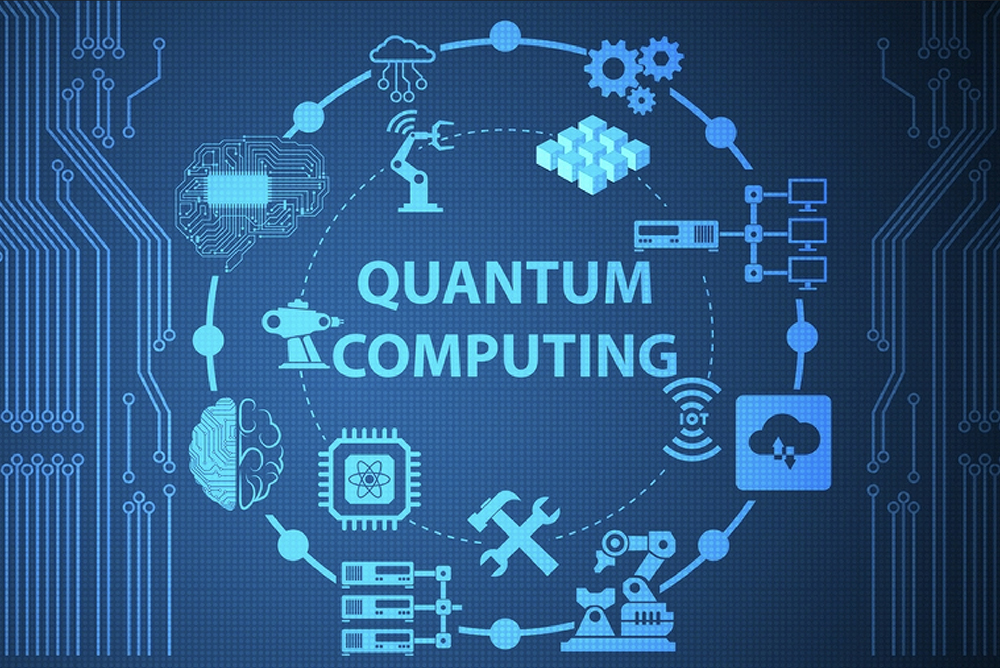Bgroho Insights
Your daily source for news, tips, and inspiration.
Quantum Quandaries: Why Your Next Computer Might Just Be Weird
Discover the mind-bending world of quantum computing and why your next device could defy logic as we know it!
Quantum Computing 101: What Makes It Different from Classical Computers?
Quantum computing represents a groundbreaking shift from classical computing, leveraging the principles of quantum mechanics to process information in ways that traditional computers cannot. Unlike classical bits, which can either be a 0 or a 1, quantum bits or qubits exist in a state of superposition, allowing them to be both 0 and 1 simultaneously. This unique property enables quantum computers to perform complex calculations at unprecedented speeds, tackling problems that would take classical computers thousands of years to solve. Additionally, quantum entanglement allows qubits that are entangled to be correlated with one another, further enhancing their computational power.
One key difference between quantum and classical computers lies in how they process information. Classical computers use deterministic algorithms to perform calculations sequentially, while quantum computers utilize quantum algorithms such as Shor's algorithm and Grover's algorithm, which can exponentially speed up certain computations. The potential applications for quantum computing are vast, including advancements in cryptography, drug discovery, and complex system simulations that could revolutionize various fields. As research continues, understanding the distinctions between these two paradigms of computing is essential for grasping the future of technology.

The Weirdness of Quantum Bits: Understanding Qubits and Their Implications
The world of quantum computing introduces us to the fascinating concept of qubits, the fundamental units of quantum information. Unlike classical bits, which can exist in a state of either 0 or 1, qubits possess a unique property known as superposition. This allows them to exist in multiple states simultaneously, thereby enhancing the computational power of quantum systems. To better understand this bizarre phenomenon, consider the analogy of a spinning coin: while it’s in motion, it’s neither heads nor tails but can represent both states at once. This quality alone gives quantum bits their remarkable potential to solve complex problems much faster than traditional computers.
In addition to superposition, qubits are also characterized by another intriguing principle known as entanglement. When qubits become entangled, the state of one qubit is directly related to the state of another, no matter how far apart they are. This phenomenon challenges our classical understanding of information transfer and raises profound questions about the nature of reality and information itself. As researchers continue to explore the implications of quantum bits, they are uncovering new possibilities in fields ranging from cryptography to drug discovery, paving the way for a new era of technology that once seemed confined to the realm of science fiction.
Are We Ready for Quantum Computers? Exploring the Challenges Ahead
The advent of quantum computers marks a revolutionary leap in computational power, promising to solve complex problems that are currently beyond the reach of traditional computing. However, as we stand on the brink of this technological breakthrough, a myriad of challenges loom on the horizon. These challenges encompass not only the technical hurdles associated with quantum computing hardware and software development but also profound implications for cybersecurity, algorithm design, and data integrity. Addressing these issues requires a concerted effort from both the scientific community and industry stakeholders to ensure that we are prepared for the transformation that quantum computing will bring.
One of the primary obstacles we face is the issue of quantum coherence. Quantum systems are incredibly delicate and susceptible to interference from their environment, which can lead to errors in computation. To tackle this challenge, researchers are exploring various methods, including error correction techniques and the development of more stable quantum bits (qubits). Additionally, there's an urgent need for new algorithms that can leverage the unique capabilities of quantum computers, as many existing algorithms are ill-suited for this paradigm shift. As we delve deeper into this era of quantum technology, it's essential that we not only acknowledge these challenges but actively work towards solutions that will pave the way for a future where quantum computers can be deployed effectively across various industries.